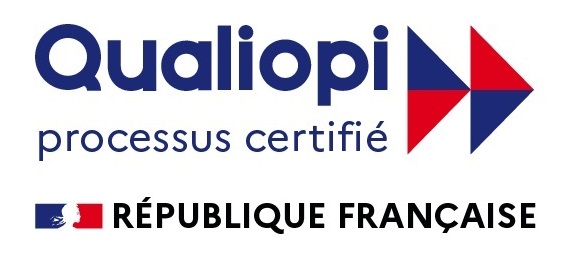T 66v16 - E-learning - IATF 16949 training package - Readiness and audit of your automobile quality management system AQMS version 2016
E-Learning (online courses) - Implementation, maintenance, improvement and internal audit of your automotive quality management system IATF 16949: 2016. You save 75 euros on the second course and 70 euros on included documents!
|
||||

|
|
|||
Description
T 16v16 Online training IATF 16949 readiness version 2016
Discover the IATF 16949 version 2016 and
- its content
- its principles
- its automative requirements
- the stakes
Get used to
- quality approach
- quality management system (QMS)
- process approach
- automotive requirements
- automotive tools
- risk-based thinking
- quality terminology
-
- automobile documentation
- IATF 16949 readiness documentation
- IATF 16949 internal audit documentation
- the FMEA process and product approach and online course
- the risk approach and online course
- continual improvement
The important and fundamental elements of a quality management system
- quality approach (quality management principles, PDCA cycle)
- process approach (definitions, process types, mapping)
- context of the company (customer requirements
- leadership of top management (commitments, responsibilities)
- planning of the QMS (risks, actions, objectives)
- product realization and service provision (operational control, requirements for products and services, design and development, external providers)
- performance evaluation monitoring, measure, analysis, internal audits, management review)
- improvement (nonconformities, corrective actions, continual improvement)
The menu of the course
- Presentation
- MCT (multiple-choice test) Beginning (10 questions)
- 1 Quality approach
- 1.1 Background
- 1.2 Scope
- 1.3 Principles and steps
- 2 Standards, definitions, books
- 2.1 Standards
- 2.2 Definitions
- 2.3 Books
- MCT QMS approach (7 questions)
- 3 Process approach
- 3.1 Process
- 3.1.1 Management process
- 3.1.2 Realization process
- 3.1.3 Support process
- 3.2 Process mapping
- 3.3 Process approach
- 3.1 Process
- MCT Process approach (7 questions)
- 4 Context of the organization
- 4.1 The organization and its context
- 4.2 Needs and expectations of interested parties
- 4.3 Scope of the QMS
- 4.4 QMS and its processes
- Case Interested parties
- Case Customer and need
- Case Priority tasks
- MCT Context of the organization (9 questions)
- 5 Leadership
- 5.1 Leadership and commitment
- 5.2 Policy
- 5.3 Roles, responsibilities and authorities
- Case New line
- MCT Leadership (7 questions)
- 6 Planning
- 6.1 Actions to address risks and opportunities
- 6.2 Quality objectives
- 6.3 Planning of changes
- MCT Planning (7 questions)
- 7 Support
- 7.1 Resources
- 7.2 Competence
- 7.3 Awareness
- 7.4 Communication
- 7.5 Documented information
- Case Communication
- MCT Support (8 questions)
- 8 Operation
- 8.1 Operational planning and control
- 8.2 Requirements for products and services
- 8.3 Design and development
- 8.4 External providers
- 8.5 Production and service provision
- 8.6 Release of products and services
- 8.7 Control of outputs
- Case Design review
- Case Selecting suppliers
- Case Process stability
- MCT Operation (9 questions)
- 9 Performance evaluation
- 9.1 Monitoring, measurement, analysis and evaluation
- 9.2 Internal audit
- 9.3 Management review
- Case Audit program
- Case Management review
- MCT Performance evaluation (9 questions)
- 10 Improvement
- 10.1 General
- 10.2 Nonconformity and corrective action
- 10.3 Continual improvement
- Case Kaizen & problem
- Case Nonconformities
- MCT Improvement (8 questions)
- MCT End (20 questions)
T 36v16 Online training IATF 16949 internal audit version 2016
The important and fundamental elements of an internal audit
- scope
- normative references
- principles
- audit program (responsibilities, records)
- audit conducting (objectives, evidence, conclusions)
- auditor competences (knowledge, training)
The menu of the course
- Presentation
- MCT (multiple-choice test) Beginning (10 questions)
- 1 Scope
- 2 Normative references
- 3 Definitions
- 4 Principles
- 4.1 Management principles
- 4.2 Audit principles
- 4.3 QMS performance
- MCT Internal audit (6 questions)
- 5 Audit programme
- 5.1 General
- 5.2 Objectives
- 5.3 Establishing
- 5.4 Implementing
- 5.5 Monitoring
- 5.6 Reviewing and improving
- Case Audit program
- MCT Audit program (11 questions)
- 6a Audit preparation
- 6.1 General
- 6.2 Initiating
- 6.2.1 First contact
- 6.2.2 Situations and feasibility
- 6.3 Preparing the audit
- 6.3.1 Document review
- 6.3.2 Audit plan
- Case Audit readiness
- MCT Audit preparation (9 questions)
- 6b Performing an audit
- 6.4 Audit activities
- 6.4.1 Opening meeting
- 6.4.2 Audit evidence
- 6.4.3 Audit conclusions
- 6.5 Audit report
- 6.6 Completing the audit
- 6.7 Audit follow-up
- 6.4 Audit activities
- Case Audit report
- Case Management review
- MCT Performing an audit (8 questions)
- 7 Competence and evaluation of auditors
- 7.1 General
- 7.2 Auditor competence
- 7.3 Evaluation criteria
- 7.4 Evaluation methods
- 7.5 Auditor evaluation
- 7.6 Improving the competence
- Case Auditor question
- MCT Auditor competences (8 questions)
- MCT End (20 questions)



